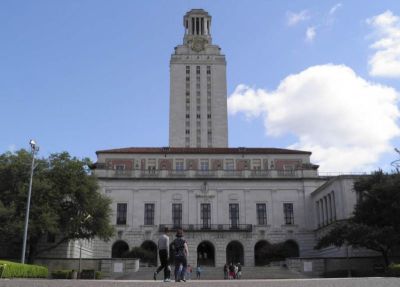College Freshmen Abandon Religion at 'Skyrocketing' Rate

Analysis of religious affiliation trends among American college first-year students has found that the number of those who do not belong to a religion, or the "nones," has skyrocketed in the past three decades.
Allen Downey, professor of Computer Science at Olin College in Needham, Massachusetts, wrote in an article for Scientific American on Thursday that he analyzed numbers from the Cooperative Institutional Research Program's 2016 Freshman survey, which revealed the dramatic rise in "nones."
The survey, based on data from 137,000 first-time students at 184 colleges and universities in the U.S., showed that college students with no religious affiliation were only at 10 percent in 1986, but have now tripled, rising up to 31 percent in 2016.
Meanwhile, students attending religious services dropped from 85 percent to 69 percent in the same time period.
"These trends provide a shapshot of the current generation of young adults; they also provide a preview of rapid secularization in the U.S. over the next 30 years," Downey wrote.
He pointed out that both Catholic and Protestant denominations experienced drops, though students choosing the "Other Christian" category increased from five percent to 13 percent in the past three decades.
There were more "nones" at universities (36 percent) than at four-year-colleges (26 percent), though Downey explained that is because more colleges than universities are religiously affiliated.
The statistics also showed that LGBT students are twice as likely to be nonreligious compared to their heterosexual peers, at 57 percent versus 27 percent, respectively.
"Many religions have negative attitudes toward homosexuality; apparently the feeling is mutual," he noted.
There were some differences in belief alongside gender and race lines, with men at four percentage points more likely to say they have no religion than women.
As much as 40 percent of Asian students said in CIRP's 2015 report that they have no affiliation, compared to 30 percent of non-Hispanic Whites, 26 percent of Hispanics, and 14 percent of Black students.
Christian leaders have recognized and expressed concern over the problem of millennials abandoning Christianity, especially while in college. Some have argued that problems in the family largely contribute to the move away from faith.
Co-authors Alex McFarland and Jason Jimenez argued in their book, Abandoned Faith: Why Millennials Are Walking Away and How You Can Lead Them Home, that family breakdown is a major factor for this tend.
"I've got to say this," McFarland told The Christian Post in March, "as a pastor, as a researcher, as an educator, as just a Christian who cares, the single greatest contributor to the attrition rate [of the Christian faith] has been the breakdown of the family."
Chelsen Vicari, who is the Evangelical Program director for the Institute on Religion and Democracy, noted back in September that statistics by the Public Religion Research Institute show that divorce plays a very big part.
"Divorce is a key contributor to religious disaffiliation, found PRRI researchers. About 35 percent of Americans raised by divorced parents were more likely to be unaffiliated with a religious tradition than those whose parents were married during childhood," Vicari noted.
She added that even though the statistics showed that only seven percent of nones return to religion, there were also reasons to feel hopeful.
"I wasn't 'looking' to join a religious group before I encountered the Gospel of Jesus Christ. And I'm willing to bet that neither were you, reader friend. It was thanks in part to the sorrow of sin, the witness of a pastor acting as marriage counselor, and the Holy Spirit that I eventually chose to identify as 'religiously affiliated,'" she said of her own experience.




























